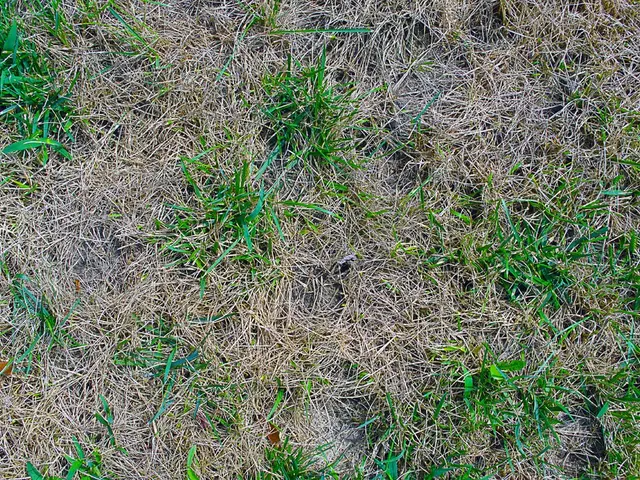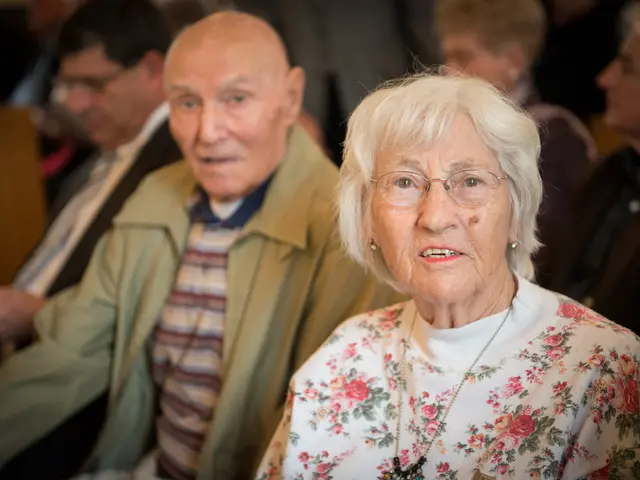Maintaining Brain Health: Mediterranean Diet and Active Lifestyle Could Offer Protection
Living the MedWalk Life: An Innovative Approach to Combat Cognitive Decline
Are you tired of those pesky memory lapses and looking to keep dementia at bay? Look no further than the MedWalk intervention! This groundbreaking study combines the brain-boosting power of the Mediterranean diet with the stride-strong benefits of regular walking.
Researchers from Down Under (and beyond) are diving in deep to investigate whether adopting the MedWalk lifestyle can help reduce the risk of cognitive decline and dementia, including Alzheimer's - the most common form of dementia.
While both the Mediterranean diet and walking regularly have been associated with improved brain health, this significant research aims to confirm the advantages of joining forces. Let's dive into the details!
Originally designed to track cognitive abilities over a 2-year period, the effects of COVID-19 have caused the study to adjust its timeline, now aiming for a 1-year follow-up period instead. Despite the hiccup, the scientists remain optimistic that the study's revised structure will yield robust findings.
The primary focus of the study is to measure changes in visual memory and learning abilities over a 12-month period. Researchers are also keeping a keen eye on the MedWalk intervention's impact on aspects like mood, quality of life, health costs, cardiovascular health, and arterial stiffness.
Bring on the participants! The study is recruiting individuals aged 60-90 from independent living retirement communities in South Australia and Victoria, with some participants also hailing from the larger community due to the pandemic's influence.
To combat cognitive decline, the study keeps a close watch on biomarkers like glucose regulation, inflammation, nutrients, and oxidative stress.
The participants will be sorted into two groups: the MedWalk intervention group and a control group maintaining their usual diet and activity levels. The MedWalk intervention group will participate in a combination of dietary modification and a guided walking program, fortified with psychosocial behavioral change techniques. These participants will receive intensive support for 6 months, with additional assistance available for the subsequent 6 months to help them stick to their new lifestyle.
The researchers provide instruction on the Mediterranean diet, emphasizing its difference from the typical Australian diet to help participants understand the appeal of this delectable way of eating. In addition, they are providing essential dietary staples like extra-virgin olive oil to make the transition smoother. After an assessment of participants' baseline aerobic fitness, they will partake in group walking sessions for the first 6 months, followed by monthly sessions for the remaining 6 months.
Now, let's hear from a certified nutritionist specializing in the Mediterranean diet (but not part of the current study), Certified Nutritionist Conner Middelmann. She explains that studies suggest following a Mediterranean diet is associated with fewer cases of dementia, and others have found links between the diet and lower rates of Alzheimer's disease. However, she stresses the importance of considering multiple factors that might impact dementia risk, such as genetics, overall health, and lifestyle.
Middelmann believes that the Mediterranean diet may support brain health in several ways, such as by combating inflammation, offering valuable omega-3 fatty acids, promoting gut health, reducing the risk of insulin resistance, and excluding ultra-processed food - which has been linked to dementia. Additionally, she highlights the social and physical aspects of the Mediterranean diet, including the sharing of meals and exercising through regular walking, as contributors to brain health.
Ryan Glatt, a brain health coach from the Pacific Neuroscience Institute, also weighs in on the benefits of walking for cognitive health. Walking is associated with slowed cognitive decline, and one intriguing study found that taking 10,000 steps a day could lower the risk of dementia by 50%! Walking may improve brain health by increasing blood flow, stimulating brain activity, reducing stress, and incorporating social and natural elements that contribute to overall brain benefits.
The data collection for this study is scheduled to wrap up by the end of 2023. Stay tuned for the results – the MedWalk life might just be your ticket to maintaining a sharp mind!
- By adopting the MedWalk lifestyle, researchers hope to discover if it can help reduce the risk of cognitive decline and dementia, including Alzheimer's, the most common form of dementia.
- The study's focus is on measuring changes in visual memory and learning abilities over a 12-month period, while also examining the impact on aspects such as mood, quality of life, health costs, cardiovascular health, and arterial stiffness.
- The study is recruiting individuals aged 60-90, with some participants coming from independent living retirement communities in South Australia and Victoria, while others are joining from the larger community due to the pandemic.
- The study is tracking biomarkers like glucose regulation, inflammation, nutrients, and oxidative stress to combat cognitive decline.
- The participants will be divided into two groups: those adopting the MedWalk intervention, which combines dietary modification and guided walking, and a control group maintaining their usual diet and activity levels.
- The MedWalk intervention group will receive intensive support for 6 months, with additional assistance available for the subsequent 6 months to help participants stick to their new lifestyle, which includes following a Mediterranean diet and participating in group walking sessions.








